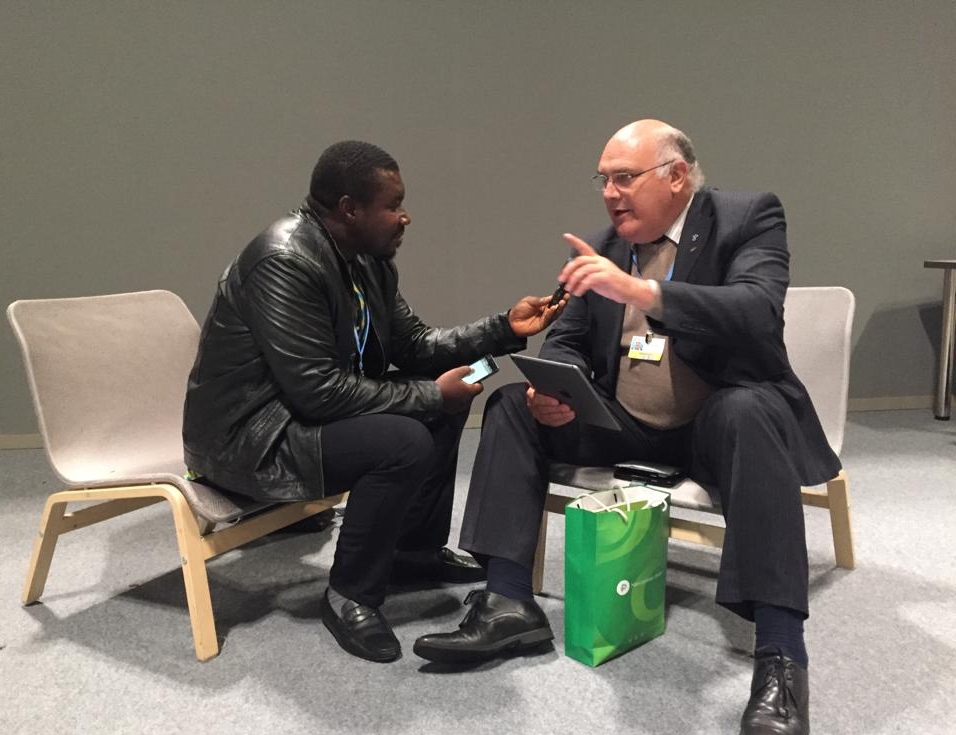
By Kofi Adu Domfeh
The uncertainty in predicting the weather has been the single major challenge to productive farming in Ghana and other parts of Africa in recent years.
Access to weather information and irrigation services are among interventions farmers need to survive the unexpected changes.
Speaking to ClimateReporters on the sidelines of the 25th UN Climate Change Conference (COP25) in Madrid, Spain, President of the World Farmers Organization, Theo de Jager, said smallholder farmers need to be exposed to climate smart agriculture for sustainability.
After years of negotiations on how mankind should deal with climate change, farmer’ organizations have managed to ensure the mainstreaming of agriculture in the climate talks.
The buzz word in the climate circles today is climate-smart agriculture.
For small-holder farmers in Africa who are often food-insecure and the poorest, climate-smart agriculture is in line with modernization and mechanization of food production.
“Africa’s time has come to have a revolution in agricultural production because we have everything which money cannot buy; the climate, soils, land, water, the people. What we lack are things we can bring about through investments; the linkages to markets, processing facilities, the financing, expertise and the experience,” noted Theo.
He is hopeful these opportunities would be unlocked by the African farmers themselves.
Theo, a South African farmer, believes farmers in Africa can pull the trigger by forming stronger cooperatives to increase output and secure their future.
“I believe with every cell in my body, give us 25–30 years, if we have this common dream we can do it; not through mining, not through oil, not through tourism [but] through agriculture,” he said.
The World Farmers Organization is the apex body for 86 national farmers’ organizations across the globe, comprising large-scale and small-holder farmers.










